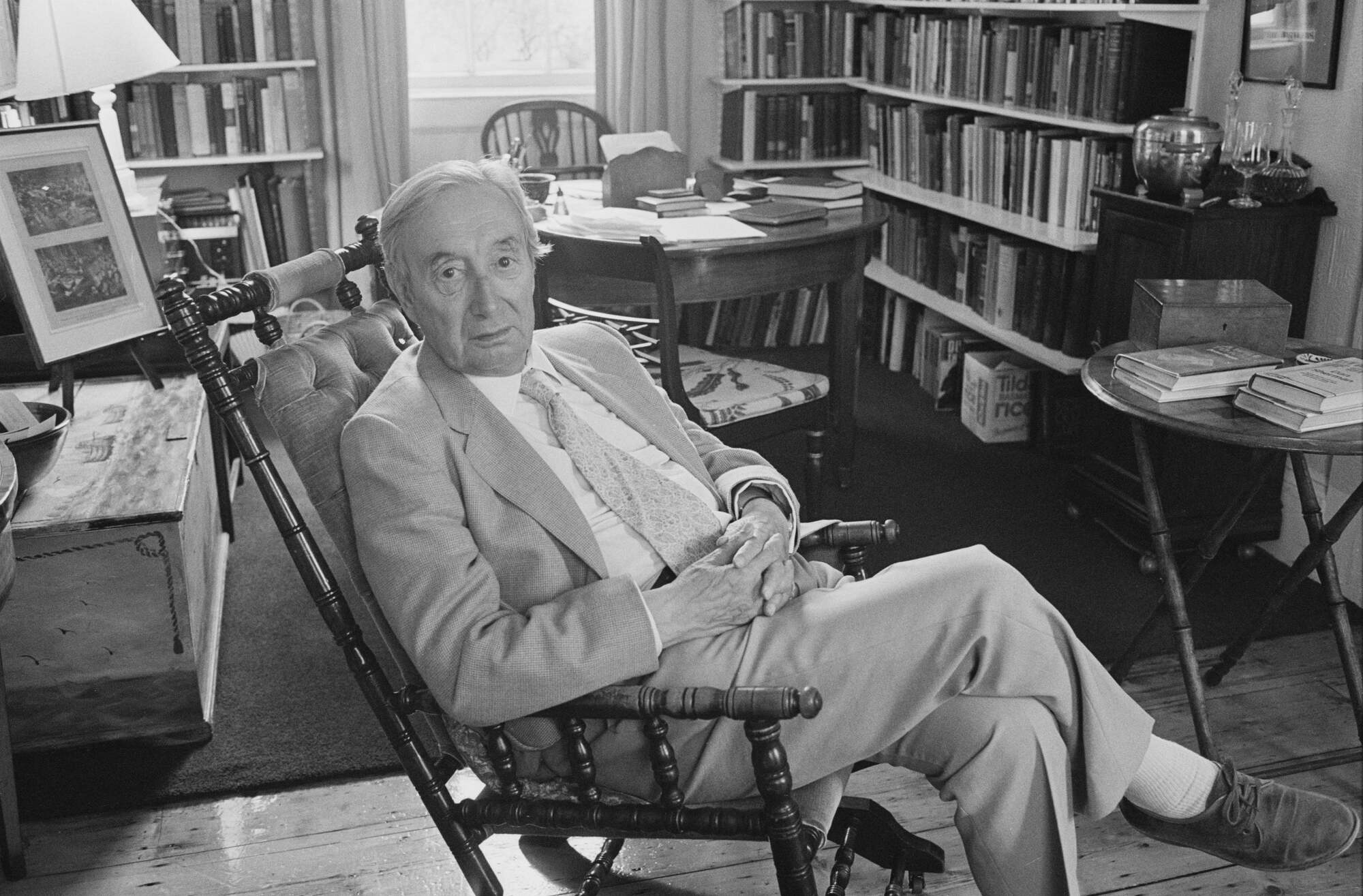
A.J. Ayer, short for Alfred Jules Ayer, was a renowned British philosopher and one of the most influential figures in the field of logical positivism. Known for his sharp intellect and controversial views, Ayer made significant contributions to philosophy with his groundbreaking work in ethics, theory of knowledge, and the philosophy of language.
In this article, we will delve into the intriguing life and ideas of A.J. Ayer, uncovering nine mind-blowing facts about this remarkable thinker. From his provocative views on religion and morality to his colorful personal life, Ayer’s unique perspective continues to captivate scholars and intellectuals around the world. So, fasten your seatbelts as we embark on a journey to explore the mind of A.J. Ayer!
Key Takeaways:
- A.J. Ayer was a charismatic British philosopher known for his early influential work and colorful personality. His ideas on language, ethics, and atheism continue to shape contemporary philosophy.
- Despite his near-death experience and evolving views, A.J. Ayer’s legacy as a leading figure in logical positivism and philosophy of language remains influential in the field of philosophy.
A.J. Ayer was a renowned British philosopher and a leading figure in the logical positivist movement.
A.J. Ayer, born on October 29, 1910, in London, was widely recognized for his contributions to the field of philosophy. He played a significant role in the development of logical positivism, which aimed to analyze and verify the meaning of statements through logical and empirical methods.
Ayer’s influential book, “Language, Truth, and Logic,” was published when he was only 26 years old.
In 1936, A.J. Ayer published his groundbreaking work, “Language, Truth, and Logic,” which quickly became a seminal text in the philosophy of language. The book introduced the concept of verification principle, emphasizing that a statement can only be meaningful if it is verifiable either empirically or through logical analysis.
Ayer was known for his colorful personality and was often described as a charismatic and witty individual.
Not only was A.J. Ayer respected for his intellectual prowess, but he also had a reputation for his lively and entertaining personality. His sharp wit and knack for engaging conversation made him a captivating figure in academic and social circles.
Ayer famously declared that moral statements are expressions of emotions rather than objective truths.
Ayer was a proponent of emotivism, a moral theory that suggests moral judgments are nothing more than expressions of personal feelings or attitudes. He argued that ethical statements are not objectively true or false, but rather reflect individual emotional responses.
Ayer had a near-death experience in 1988 which resulted in a temporary cessation of his heart’s activity.
In 1988, Ayer suffered a heart attack and was pronounced clinically dead for several minutes. However, he was successfully revived and lived for another four years before passing away in 1989.
Ayer’s philosophical views evolved over time, and he later distanced himself from some of his earlier ideas.
Throughout his career, Ayer engaged in ongoing philosophical reflection and was not afraid to revise his positions. In later years, he became more critical of his earlier assumptions and developed new insights that shaped his evolving philosophical perspective.
Ayer was a strong advocate for atheism and argued against the existence of God.
As an atheist, Ayer firmly rejected the idea of a higher power or divine being. He viewed religious claims as lacking empirical evidence and thus deemed them meaningless. Ayer’s atheistic stance made him an influential figure in the philosophy of religion.
Ayer was a visiting professor at prestigious universities across the globe, including Harvard and Oxford.
Ayer’s expertise and reputation led him to be invited as a visiting professor at esteemed institutions worldwide. He imparted his knowledge to students at renowned universities such as Harvard, Oxford, and the University of California, Berkeley.
Ayer’s intellectual legacy continues to influence contemporary philosophy.
A.J. Ayer’s contributions to logical positivism, philosophy of language, and ethics have left a lasting impact on the field of philosophy. His ideas continue to be studied and debated by scholars, ensuring that his intellectual legacy endures.
Conclusion
In conclusion, A.J. Ayer was a remarkable figure in the field of philosophy. His contributions to logical positivism and language analysis have had a profound impact on the way we understand and approach philosophical discussions. Ayer’s commitment to empirical evidence and his ability to dissect abstract concepts into verifiable statements were essential in shaping the landscape of analytical philosophy.Moreover, A.J. Ayer’s work not only influenced the academic community but also sparked public interest in philosophy. His book “Language, Truth, and Logic” remains a classic and accessible introduction to his philosophical ideas. By promoting clarity and rationality, Ayer encouraged individuals from all walks of life to engage in philosophical thinking.Overall, A.J. Ayer’s legacy lies in his ability to bridge the gap between philosophy and everyday life, making complex concepts accessible to a wider audience. His ideas continue to inspire critical thinking and serve as a foundation for ongoing philosophical debates.
FAQs
Q: Who was A.J. Ayer?
A: A.J. Ayer, whose full name was Alfred Jules Ayer, was a British philosopher known for his work in logical positivism and language analysis.
Q: What were A.J. Ayer’s main contributions to philosophy?
A: Ayer’s main contributions revolved around logical positivism, a philosophical movement that emphasized empirical evidence and the verification of statements through logical analysis.
Q: What is Ayer’s most famous book?
A: Ayer’s most famous book is “Language, Truth, and Logic,” published in 1936. It became a seminal work in logical positivism and remains an influential text in the field of philosophy.
Q: How did A.J. Ayer’s work impact philosophy?
A: Ayer’s work had a tremendous impact on the field of philosophy, particularly in the areas of language analysis, the nature of knowledge, and the philosophy of mind. His ideas and methods continue to shape discussions and debates in these domains.
Q: Did A.J. Ayer’s work have an impact beyond academia?
A: Yes, Ayer’s work reached beyond academia and sparked public interest in philosophical exploration. His ability to communicate complex ideas in a clear and accessible manner made philosophy more approachable for a wider audience.
If you're fascinated by the world of philosophy and the great minds who have shaped it, you'll love exploring the lives and ideas of other influential thinkers. Delve into the Stoic teachings of Epictetus and discover how his philosophy can still guide us today. Or, journey into the empiricist world of David Hume and uncover the astounding facts that make him one of the most important figures in Western philosophy. From ancient wisdom to Enlightenment insights, there's always more to learn and ponder in the realm of philosophy.
Was this page helpful?
Our commitment to delivering trustworthy and engaging content is at the heart of what we do. Each fact on our site is contributed by real users like you, bringing a wealth of diverse insights and information. To ensure the highest standards of accuracy and reliability, our dedicated editors meticulously review each submission. This process guarantees that the facts we share are not only fascinating but also credible. Trust in our commitment to quality and authenticity as you explore and learn with us.


